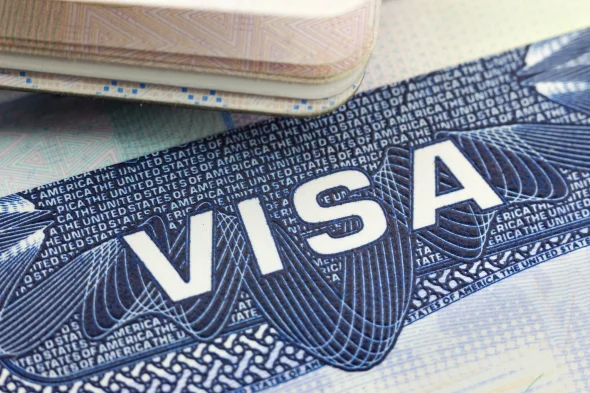How Do I Sponsor a Work Visa for an Employee in the US?

Key Takeaways
- Sponsoring a work visa means filing petitions, following labor laws, and proving financial stability.
- The process includes labor certification, USCIS petition filing, and ongoing compliance.
- An immigration attorney can help simplify the process and prevent mistakes that cause delays.
What Is a Work Visa Sponsorship?
When you sponsor a foreign worker for a U.S. visa, you’re legally committing to supporting their application. This means filing the right paperwork, paying government fees, and ensuring compliance with labor laws.
Sponsorship isn’t just about hiring a skilled worker—it also means proving that you genuinely need foreign talent and that you can financially support the position. You’ll need to show that you’re following fair wage laws and documenting your hiring efforts to prove that no qualified U.S. workers are available for the role.
Requirements for Sponsoring a Work Visa
To successfully sponsor an employee for a work visa, you must meet several key requirements:
- Demonstrate Financial Stability: Show that your company can pay the required wage using tax returns, financial statements, or annual reports.
- Comply with Wage Requirements: Determine and document the prevailing wage for the job based on Department of Labor guidelines.
- Conduct a Labor Market Test: If required, advertise the position and prove there are no qualified U.S. workers available.
- Submit USCIS Forms: File the appropriate petitions, such as Form I-129 for temporary workers or Form I-140 for employment-based green cards.
- Ensure Ongoing Compliance: Maintain accurate employment records, meet wage obligations, and follow labor laws for the duration of the visa holder’s employment.
Get the right lawyer for your immigration journey
Schedule a free 15-min call with our team today
Get started
Steps to Sponsor a Work Visa
Sponsoring an employee for a visa involves several steps. Here’s what the process looks like:
- Choose the Appropriate Visa Category
- Identify which visa best fits the job and the employee’s qualifications.
- Common options include H-1B (skilled workers), L-1 (transfers within the same company), and O-1 (extraordinary ability workers).
- Request Labor Certification (if required)
- Some visas require PERM labor certification, meaning you must advertise the job and prove that no qualified U.S. workers are available.
- File a Petition with USCIS
- Submit Form I-129 or Form I-140, along with required documents proving job details, employee qualifications, and company eligibility.
- Complete Employment Verification

- Ensure compliance with Form I-9 and other verification requirements to confirm the worker’s employment eligibility.
- Support the Employee Through the Process
- Assist with consular processing if the employee is outside the U.S., including interview preparation and submission of supporting documents.
Steps to Sponsor a Work Visa
Yes, employers can help support the visa applications for an employee’s spouse and children under 21.
- Eligibility: Dependents typically qualify for H-4, L-2, or other derivative visas.
- Benefits: Some dependent visas allow spouses to apply for work authorization.
- Documentation: The employee must provide proof of family relationships and financial support for their dependents.
Steps to Sponsor a Work Visa
Quality legal care for life’s ups and downs

Our services
Client support

Disclaimer

Legal information







